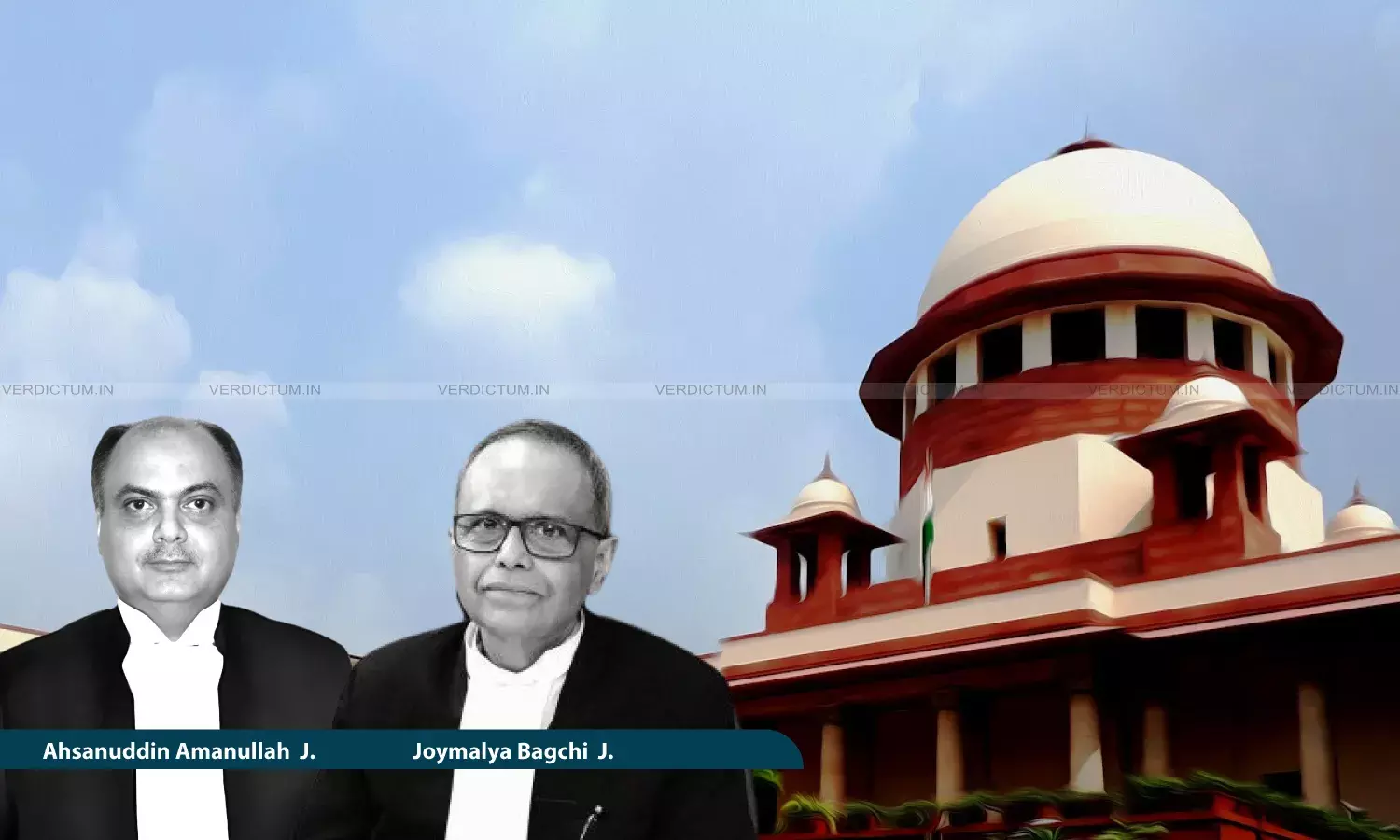'Presumption' Of Penetrative Sexual Assault Not Supported By Medical Report Or Statements: Supreme Court Modifies Conviction
The allegation against the man was of touching the private parts of the victim, however, he was convicted under Section 376AB of the IPC and Section 6 of the POCSO Act.

Supreme Court of India, Justice Ahsanuddin Amanullah and Justice Joymalya Bagchi
The Supreme Court modified the conviction of a man from rape to that of sexual assault and observed that the "presumption" by the Lower Courts that there was penetrative sexual assault cannot be sustained, going by the medical report and the statements of the victim herself.
In the FIR, the statement of the victim recorded under Section 164 of the CrPC and the deposition of the victim-girl before the Court during trial, the allegation against the accused was that of touching the private parts of the victim and, at the same time, of himself.
The Bench of Justice Ahsanuddin Amanullah and Justice Joymalya Bagchi observed, “The presumption by the Trial Court as upheld by the High Court that there was penetrative sexual assault, cannot be sustained for simple reason that the same is neither supported by the medical report nor by the statement of the victim herself on three different occasions as also, that of the mother of the victim. From the said reading of all the three statements which have common thread, the direct allegation is of touching the private parts of the victim and also at the same time, the appellant touching his private organs. In such a view of the matter, we find that the conviction recorded under Section 376 AB of the IPC and under Section 6 of the POCSO Act, cannot be sustained.”
Case Brief
An appeal was filed against the order of a High Court whereby the accused was convicted for the offence under Section 376 AB of the Indian Penal Code, 1860 and under Section 6 of the Protection of Children from Sexual Offences Act, 2012. The accused was sentenced to undergo twenty years of Rigorous Imprisonment along with fine of Rs.50,000.
However, it was contended by the accused that the FIR, the statement of the victim recorded under Section 164 CrPC and the deposition of the victim-girl before the Court during trial, it was clear that the offence under Section 376 AB as well as under Section 6 of the POCSO Act, was not proved.
Further, it was submitted that the allegation was that the accused had touched the private parts of the victim and put his hand in his sexual organ; thus, there has not been actual rape committed on the victim as there was no penetration. It was also contended that, at worst, it can be a case under Section 354 of the IPC and under Section 9(m) of the POCSO Act.
Court’s Observation
After considering the evidence and other materials on record, the Supreme Court held that the offence made out from such allegations does not satisfy the ingredients of either Section 375 of the IPC or Section 3(c) of the POCSO Act.
The Court referred to the provisions describing the offence of rape, penetrative sexual assault, sexual assault and aggravated sexual assault.
The Bench observed that the presumption by the Trial Court and the High Court that there was penetrative sexual assault cannot be sustained for the simple reason that the same is neither supported by the medical report nor by the statement of the victim herself on three different occasions.
The Supreme Court said, “From the said reading of all the three statements which have common thread, the direct allegation is of touching the private parts of the victim and also at the same time, the appellant touching his private organs. In such view of the matter, we find that the conviction recorded under Section 376 AB of the IPC and under Section 6 of the POCSO Act, cannot be sustained.”
Consequently, the Bench modified the conviction of the accused to that under Section 354 of the IPC and under Section 10 of the POCSO Act.
Accordingly, the appeal was allowed.
Cause Title: Laxman Jangde V. State of Chhattisgarh
Click here to read/download Order


